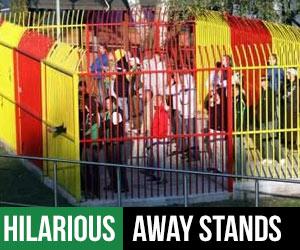Want to buy pyrotechnics? Visit pyro.ultras-tifo.net

In the realm of sports, football has always been more than just a sport. It holds the power to unite communities, spark fierce rivalries, and ignite the passions of millions around the world. However, beyond the goals, tackles, and trophies lies a realm where football intersects with politics. At the forefront of this intersection are the Ultras groups, whose fervent support for their teams extends far beyond the boundaries of the stadium.
These passionate fans have become a powerful force for protests and activism, using the sport as a platform to raise awareness, challenge discrimination, and demand social change. The article below uncovers Ultras rise, struggles, and current role in football politics. So, let’s get started.
The rise of Ultras culture
We must delve into their history and unique characteristics to understand the significance of Ultras groups in football activism. Emerging in the late 1960s and early 1970s, the Ultrasmovement originated in Europe, particularly Italy.
These groups are known for their unwavering support, creative choreographies, and impressive banners, flags, and pyrotechnics displays. Besides, they take pride in their distinctive rituals involving synchronized chanting, drumming, and choreographed movements. Through these practices, Ultras groups establish a strong sense of identity and belonging among their members, fostering a tight-knit community united by their love for their team and shared activism.
Football as a platform for activism: Beyond the stadium walls
Football’s immense popularity and global reach provide a unique platform for activism that extends well beyond the confines of the stadium. Ultras groups have harnessed this visibility to raise awareness about various social and political causes.
By leveraging their influence and passionate fan base, they have successfully shed light on poverty, human rights abuses, and environmental concerns. Besides, they demonstrate that football can catalyze positive change through organized initiatives, charity drives, and community engagement.
One of the most impactful ways Ultras groups have used their influence is by combating discrimination within football. Whether it be racism, sexism, or homophobia, these groups have organized campaigns to challenge discriminatory behavior both within the stands and on the pitch.
Their collective action and unwavering support for inclusive values have pushed football governing bodies to take a stand against discrimination and implement policies that promote equality. By addressing these issues head-on, Ultras groups have shown that football can be a powerful tool for social progress.
Ultras and political protests: Chanting for change
Regarding political protests, Ultras groups have mastered the art of using their voices to amplify the people’s desires, much like the 3-dollar deposit casino platforms have mastered the art of providing exciting betting opportunities for players without causing a serious dent in their bankroll. Stadium chants often become powerful slogans that express dissatisfaction with oppressive regimes and policies. These passionate and collective outcries can be heard echoing through the stands, reverberating the sentiments of the masses. In addition, Ultras groups serve as a vocal force demanding political accountability and social justice by chanting for change.
Controversies and challenges faced by Ultras
Ultras political activism is not without obstacles. Fearing the influence and mobilizing the power of Ultras groups, authorities have often attempted to suppress their activities through intervention and repression. Clashes between Ultras and law enforcement are not uncommon as they navigate legal boundaries and safety concerns surrounding the use of pyrotechnics and other forms of visual displays.
Ultras clashes with football governing bodies also present challenges. Conflicts arise when commercial interests clash with the ethos of Ultras culture. As football becomes increasingly commercialized, these passionate fan groups find themselves at odds with the club management, challenging the commodification of the sport and the erosion of traditional values.
The influence of Ultras on football clubs and fan culture
Ultras impact extends beyond activism; they play a significant role in shaping the identity and values of football clubs. Often acting as the guardians of club traditions and heritage, Ultras groups wield influence in decision-making processes and policies, ensuring that the essence of the club remains intact.
Moreover, Ultras inspires and mobilizes fan communities, cultivating a sense of belonging and unity. They serve as catalysts, encouraging fans to engage in activism beyond the stadium. Ultras groups are known for their charitable initiatives, community outreach programs, and involvement in grassroots movements. Through their passion for football, they foster a collective spirit that transcends the boundaries of the game itself.
Global examples of Ultras political engagement
Ultraspolitical engagement can be observed worldwide, with Europe serving as the birthplace and epicentre of this culture. In Italy, Ultras groups have a long-standing tradition of political involvement. With their roots deeply embedded in the country’s social and political landscape, Italian Ultras have actively challenged discrimination, advocated for workers’ rights, and even participated in anti-establishment movements.
Germany also stands out as a notable example, where Ultrasgroups have been at the forefront of the fight against the commercialization of football. Their activism extends beyond the stadium, focusing on preserving affordable ticket prices, promoting fan ownership models, and protesting against corporate influence in the sport.
Venturing across the Atlantic, South America showcases a vibrant Ultras scene deeply intertwined with social and political movements. In Argentina, Ultra groups have harnessed the power of football fandom to mobilize communities, standing against corruption, economic inequality, and human rights abuses. Their organized protests and displays of solidarity during matches have become iconic symbols of resistance.
Brazil, known for its vibrant football culture, also witnesses the political engagement of Ultras. These fan groups have been at the forefront of campaigns against racial discrimination, advocating for LGBTQ+ rights and amplifying the voices of marginalized communities. Besides, their active participation in protests has provided a platform for social change, bridging the gap between football and activism.
The Future of Ultras and Football Activism
As the world continues to evolve, so too does Ultras culture. Adapting to changing times and challenges, these fan groups have embraced technological advancements, utilizing social media platforms and digital activism to expand their reach and impact. Online campaigns, viral videos, and coordinated virtual displays have become powerful tools for mobilization, enabling broader participation and amplification of their messages.











